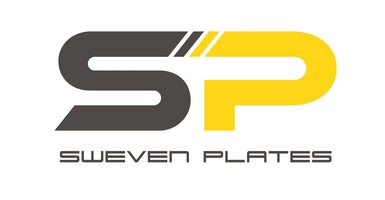
10 interesting facts about private number plates
In the past ten years, private number plates have gained immense popularity within the United Kingdom. Once associated solely with the wealthy and famous as a status symbol, today you're just as likely to find a private plate on a celebrity's car as on your local plumber's vehicle. Despite their ubiquity, it's evident that many individuals still lack a comprehensive understanding of private plates. Thus, we've compiled a collection of the most intriguing and informative facts to shed light on the matter.
1. What are Private Number Plates?
When a vehicle is first manufactured, it receives a unique registration number from the DVLA (Driver and Vehicle Licensing Agency). However, car owners can personalise this registration by obtaining a private number plate.
2. What are the different words used for Private Number Plates?
The term "private number plate" can be interchangeably referred to as a private registration, personal number plate, cherished number plate, private plate, or personalised registration.
3. Motivations Behind Private Plate Purchases
According to a survey by the DVLA, a significant 69% of respondents would opt for a private registration due to a personal connection, often a name or initials. Interestingly, 28% of UK car owners bestow names upon their vehicles, with 87% of this group further investing in a personalised number plate to mirror the car's name.
4 Absence of 'Q' in Private Plates
While browsing our platform to acquire a private plate, you'll notice the conspicuous absence of personalised registrations containing the letter 'Q.' This omission arises from the fact that 'Q' plates are exclusive to vehicles with questionable historical aspects. These plates are specifically assigned to certain vehicle types, including kit cars, extensively modified cars, former military vehicles, and those lacking a Vehicle Identification Number.
5. The Prevalence of Private Registrations
In 2020, data from the Office for National Statistics disclosed that the people of the UK collectively owned private number plates valued at £3 billion. With the escalating popularity of private plates, this figure is anticipated to soar in the years ahead.
6. A Historical Perspective
Number plates made their debut with the enactment of the Motor Car Act in 1903. Among the earliest registrations, DY 1 stands out, with some plates now marking their 120th year in November 2023.
7. Restrictions on Altering Vehicle Age
Suffix, prefix, and current-style registration numbers feature characters denoting the initial registration date of the vehicle. Consequently, if your original number plate has an age identifier of '15,' you're precluded from acquiring and transferring a private plate bearing '22.' Only dateless number plates can be applied to any vehicle, irrespective of age.
9. Forbidden Plates
Annually, the DVLA issues a list of prohibited number plates, barring those that contain references to sex, genitalia, derogatory terms, and even COVID-19. The prohibited list in 2022 encompassed 343 such plates.
10. A Savvy Investment
Highly coveted, exclusive number plates represent astute investments due to their stability compared to assets like cryptocurrency and stocks. Notably, private number plates have shown a superior percentage value increase of +110% compared to watches (+23%), jewelry (+41%), and even classic cars (+91%).
This assortment of facts offers a glimpse into the realm of private number plates. For those who are seeking a Private Registration can get them made up from a range of suppliers such as Reg Transfers, upon purchasing your private registration you can get your number plates made up by a registered Number Plate Maker such as Sweven Plates.
Please feel free to have a look through our Road Legal Number Plates, if you have any questions one our sales assistants will be more than welcome to assist you.
